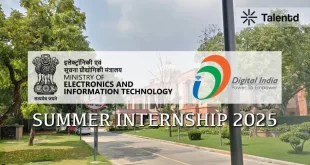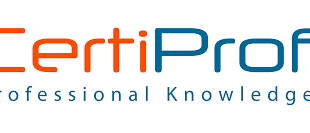A Blockchain Certification is a professional credential that validates an individual’s knowledge and skills in providing blockchain technology, its components, and its implications across various sectors
This course would equip participants with a comprehensive understanding of blockchain technology, its components, and its implications across various sectors. By the end, students should be able to analyze and discuss the potential and challenges of blockchain applications in real-world scenarios.
Here are the 100% correct answers :
Questions
- What is blockchain?
- A) A type of cryptocurrency
- B) A distributed ledger technology
- C) A programming language
- D) A central database
- Which cryptocurrency was the first to be created?
- A) Ethereum
- B) Litecoin
- C) Bitcoin
- D) Ripple
- What is a smart contract?
- A) A contract written on paper
- B) A self-executing contract with the terms directly written into code
- C) A legally binding agreement
- D) An agreement enforced by a lawyer
- Which consensus mechanism is commonly used by Bitcoin?
- A) Proof of Stake
- B) Delegated Proof of Stake
- C) Proof of Work
- D) Byzantine Fault Tolerance
- What does ‘decentralization’ mean in the context of blockchain?
- A) No central authority governing the network
- B) The ability to make changes quickly
- C) A centralized system with multiple backups
- D) A network controlled by a single entity
- What is a ‘block’ in a blockchain?
- A) A part of a computer
- B) A unit of data containing transaction information
- C) A network node
- D) A programming function
- What is the primary purpose of mining in blockchain?
- A) To create new cryptocurrencies
- B) To validate transactions and add them to the blockchain
- C) To store user data
- D) To develop new blockchain protocols
- Which of the following is a key feature of blockchain technology?
- A) Anonymity
- B) Immutability
- C) Centralization
- D) Speed
- What is a public key in blockchain?
- A) A password used to access the blockchain
- B) An encryption key used for secure communication
- C) An address that can receive cryptocurrency
- D) A code used to unlock a smart contract
- Which platform is known for enabling the creation of decentralized applications (dApps)?
- A) Bitcoin
- B) Ethereum
- C) Ripple
- D) Litecoin
- What is the main purpose of a cryptocurrency wallet?
- A) To store physical currency
- B) To securely store private and public keys
- C) To mine cryptocurrencies
- D) To buy goods and services
- Which of the following is a type of blockchain?
- A) Public
- B) Private
- C) Consortium
- D) All of the above
- What does ICO stand for?
- A) Initial Coin Offering
- B) International Cryptocurrency Organization
- C) Integrated Chain Operation
- D) Internal Coin Operation
- What is the function of a node in a blockchain network?
- A) To develop new cryptocurrencies
- B) To store and relay transaction information
- C) To provide internet access
- D) To mine new coins
- What is a fork in blockchain technology?
- A) A type of transaction
- B) A split in the blockchain protocol
- C) A security feature
- D) A mining technique
- What is the term for the process of validating and recording transactions on a blockchain?
- A) Mining
- B) Staking
- C) Hacking
- D) Delegating
- What is Ethereum primarily known for?
- A) Fast transactions
- B) Decentralized applications and smart contracts
- C) Being the first cryptocurrency
- D) High security
- What is the role of a miner in a Proof of Work system?
- A) To create new coins
- B) To validate transactions and solve complex mathematical problems
- C) To store user data
- D) To manage smart contracts
- What is the term for the unique identifier of a transaction in a blockchain?
- A) Block ID
- B) Transaction hash
- C) Crypto key
- D) Ledger ID
- What is a decentralized finance (DeFi) application?
- A) A financial application managed by a single entity
- B) A blockchain-based application that replicates traditional financial services without intermediaries
- C) A mobile banking app
- D) An app that tracks investments
Answers
- B) A distributed ledger technology
- C) Bitcoin
- B) A self-executing contract with the terms directly written into code
- C) Proof of Work
- A) No central authority governing the network
- B) A unit of data containing transaction information
- B) To validate transactions and add them to the blockchain
- B) Immutability
- C) An address that can receive cryptocurrency
- B) Ethereum
- B) To securely store private and public keys
- D) All of the above
- A) Initial Coin Offering
- B) To store and relay transaction information
- B) A split in the blockchain protocol
- A) Mining
- B) Decentralized applications and smart contracts
- B) To validate transactions and solve complex mathematical problems
- B) Transaction hash
- B) A blockchain-based application that replicates traditional financial services without intermediaries
 Priya Dogra – Certification | Jobs | Internships
Priya Dogra – Certification | Jobs | Internships


